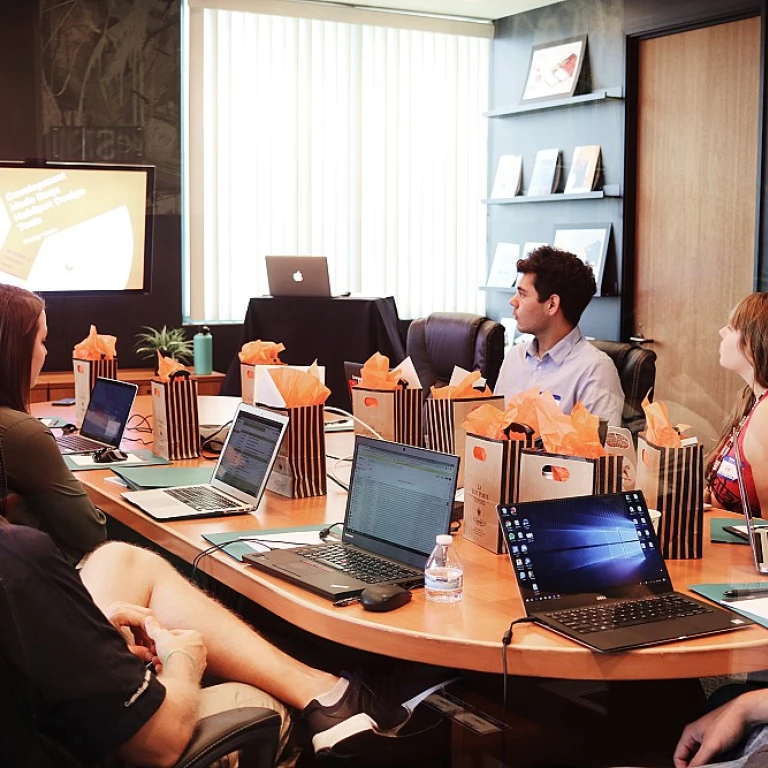
Understanding the Hospitality and Tourism Career Cluster
The hospitality and tourism sector is an expansive career cluster that offers a multitude of opportunities ranging from culinary arts to lodging management. It's a dynamic industry that thrives on providing memorable experiences, making it an attractive field for those interested in careers that blend service and creativity. Understanding this career cluster is crucial for professionals looking to navigate and build a successful career in this domain.
Unpacking the Diverse Career Paths in Hospitality and Tourism
The career cluster of hospitality and tourism encompasses various roles that cater to different needs and interests. It includes the culinary arts, which focuses on food preparation and serving, to event planning that often encompasses organizing conferences and leisure excursions. Each of these roles plays a significant part in the vast tourism landscape.
With a range of positions like event planners, customer service representatives, and food and beverage managers, individuals can find paths that align with their passion for making travel and leisure activities more enjoyable for consumers. Additionally, there's a shift towards integrating marketing, management, and education within these careers to create a seamless service experience.
The Vital Role of FCCLA and Career Technical Education
Organizations like FCCLA (Family, Career and Community Leaders of America) are pivotal in shaping the future workforce by providing career technical education. These programs equip students with the skills necessary to thrive in this ever-evolving industry. They emphasize the importance of quality customer service, food services, and how efficiently managed hospitality events can substantially impact the guest experience.
The hospitality and tourism field is not just about facilitating travel and accommodation; it's about creating unforgettable moments and sustaining a high level of service. Thus, a career in this cluster can be both challenging and rewarding, especially if professionals are adept at understanding and responding to the unique demands of the industry.
As the field continues to evolve, aspiring professionals must stay informed about industry trends and developments. For those keen on pursuing a role that involves high-volume recruitment, this article on mastering high-volume recruitment can be an informative resource.
The Role of a Chief Human Resources Officer in Hospitality and Tourism
The Strategic Role of HR Leadership in Hospitality and Tourism
In the dynamic world of hospitality and tourism, the role of a Chief Human Resources Officer (CHRO) is pivotal. This sector, encompassing travel, lodging, food services, and events, requires a unique blend of skills and strategic vision. The CHRO is not just a manager of human resources but a key player in shaping the workforce that delivers memorable experiences to guests and clients.
Driving Workforce Excellence
The hospitality and tourism industry thrives on quality customer service and memorable experiences. A CHRO in this field must ensure that the workforce is not only skilled in technical aspects like food preparation and event planning but also excels in customer service. This involves strategic recruitment, comprehensive training programs, and fostering a culture of continuous improvement.
Adapting to Industry-Specific Challenges
Hospitality and tourism present unique challenges such as high turnover rates and seasonal workforce demands. A CHRO must navigate these by implementing innovative strategies for employee retention and engagement. Understanding the nuances of career clusters within this sector, such as culinary, travel, and leisure, allows for targeted approaches in workforce management.
Enhancing Skills with Just-in-Time Training
To keep pace with the fast-evolving demands of the hospitality and tourism industry, CHROs need to leverage just-in-time training. This approach ensures that employees are equipped with the latest skills and knowledge, enhancing service delivery and operational efficiency. For more insights on this, explore enhancing skills with just-in-time training for HR leaders.
Aligning HR Strategies with Business Goals
Ultimately, the CHRO's role is to align human resources strategies with the broader business objectives of the hospitality and tourism organization. This involves collaborating with other departments to ensure that HR initiatives support marketing efforts, enhance customer satisfaction, and drive business growth. By doing so, the CHRO helps create a cohesive and efficient operation that stands out in the competitive landscape of travel and leisure.
Key Skills for a Chief Human Resources Officer
Essential Competencies for HR Leadership
In the vibrant world of hospitality and tourism, the Chief Human Resources Officer (CHRO) plays a crucial role in shaping and driving the organizational culture. Unlike industries with more static work environments, the hospitality sector demands a dynamic approach from HR leaders, given its diverse service themes ranging from food and beverage to travel and leisure experiences.- Strategic Vision: A CHRO must possess a strategic mindset, capable of aligning human resources initiatives with overarching business goals. This involves not only staffing for current needs but also anticipating future trends in hospitality and tourism HR.
- Effective Communication: In an industry defined by customer service, communication is key. A CHRO must deftly navigate diverse communication needs, from liaising with hospitality events teams to engaging culinary staff.
- Talent Management Expertise: Managing a varied workforce requires expertise in talent acquisition, retention, and development, ensuring that the workforce can deliver quality customer experiences. Consider exploring resources like unlocking potential to foster growth.
- Adaptability: With an ever-evolving hospitality landscape, flexibility is non-negotiable. A successful CHRO will be able to pivot strategies as needed, responding to changes in travel trends or shifts in culinary preferences.
- Customer-Centric Approach: The heart of hospitality and tourism lies in delivering memorable experiences. HR leaders need a customer-first mindset to ensure every touchpoint, from service to events, exceeds expectations.
- Problem Solving Skills: Efficiently navigating and resolving the unique challenges found within hospitality, from managing staff during high traffic events to addressing workforce shortages, is critical.
- Diverse Cultural Sensitivity: Given the global scope of the tourism career landscape, cultural awareness is vital for creating inclusive environments that respect diverse backgrounds across the career cluster.
Navigating Unique Challenges in Hospitality and Tourism
Understanding Industry-Specific Dynamics
Navigating unique challenges in the hospitality and tourism sector requires a keen understanding of the industry's nuances. Unlike other sectors, hospitality and tourism demand constant adaptation to trends, such as fluctuations in travel patterns, culinary innovations, and changing customer preferences. A Chief Human Resources Officer (CHRO) must be adept at identifying these trends to ensure that their organization stays competitive in the rapidly evolving marketplace.
Adapting to Seasonal Variations
One of the unique challenges in this sector is dealing with seasonal variations. Peak travel periods, like holidays and summer vacations, can lead to increased demand for services such as lodging, food and beverage, and events. A CHRO must ensure that their teams are well-prepared to handle these fluctuations. This involves strategic hiring practices and flexible workforce management to maintain quality customer service during both high and low seasons.
Managing Diverse Workforces
The hospitality and tourism industry is known for its diverse workforce, consisting of individuals from various cultural backgrounds and skill sets. Effective communication is essential for managing such diversity. A CHRO must foster an inclusive work environment where all employees feel valued and respected. This includes implementing training programs that emphasize cultural competency and conflict resolution, essential skills for anyone in management roles within this sector.
Ensuring Exceptional Customer Service
In an industry where customer satisfaction is paramount, providing exceptional customer service is non-negotiable. CHROs must instill a culture of service excellence within their organizations. This involves equipping staff with the necessary skills to deliver memorable experiences to guests, from food preparation and serving to event coordination and conference management. Prioritizing customer service in human resources strategies can significantly impact the reputation and success of the business.
Leveraging Technology for Efficiency
Technology is increasingly playing a vital role in shaping the hospitality and tourism landscape. CHROs need to be forward-thinking in adopting tech solutions like automated booking systems and AI-driven customer service tools. By leveraging technology, HR leaders can streamline operations, enhance visitor experiences, and ultimately drive business growth. Keeping abreast of technological innovations and integrating them into HR practices can give organizations a competitive edge.
Strategies for Effective Human Resources Management
Implementing Proactive Recruitment Strategies
Successful human resources management in the hospitality and tourism sector demands a keen focus on proactive recruitment strategies. This sector, marked by diverse and often fluctuating needs, benefits from a dynamic approach to sourcing talent. Managers not only need to understand the career cluster but also tailor their recruitment techniques to attract quality candidates who align with the ethos of providing memorable experiences in food, travel, and leisure services. Moreover, leveraging career technical education within FCCLA programs, for instance, can be advantageous. Cultivating partnerships with educational institutions focused on culinary, food service, and lodging can facilitate a steady pipeline of future talent. It’s essential to ensure that recruitment efforts resonate with the specific demands of various sub-sectors like culinary food, events, and tourism careers.Cultivating a Strong Workplace Culture
Creating and maintaining a robust workplace culture is crucial for hospitality and tourism businesses. Leaders in HR management must foster an inclusive and innovative environment where team members feel empowered to contribute to quality customer service and the overall success of operations. Given the diverse nature of the hospitality career cluster, a one-size-fits-all approach may not be effective. Customizing strategies to each distinct unit, whether it be food preparation and serving, customer service, or event planning, can lead to improved employee satisfaction and retention. This involves understanding the unique challenges of each sector, from food services to tourism events, ensuring that all employees have a clear role and purpose within the broader hospitality events landscape.Adapting to Technological Advancements
Technology is continually shaping the hospitality and tourism industry, and those in human resources must adapt accordingly. From managing logistics in travel tourism to utilizing innovative marketing approaches, HR managers are tasked with integrating new technologies that enhance customer service and streamline operations. Staying abreast of these advancements enables HR leaders to make informed decisions about potential investments in technology that can benefit their organization. Be it through improving efficiency in restaurants food operations or enhancing the guest experience in leisure services, technology plays a pivotal role in effective human resources management. By focusing on these strategies, those managing human resources in hospitality and tourism can better navigate their roles, helping to ensure successful and sustainable operations across this dynamic industry.Future Trends in Hospitality and Tourism HR
Embracing Technological Advancements in Human Resources
The hospitality and tourism industry is rapidly evolving, with technology playing a crucial role in shaping the future of human resource management. As digital innovations continue to emerge in the tourism and hospitality sectors, it is imperative for HR managers to adapt and implement these changes to enhance efficiency and service quality.
Leveraging Data and Analytics
Data-driven decision-making is becoming increasingly important in the realm of human resources. Hospitality events, lodging services, and tourism careers can greatly benefit from the insights provided by data analytics. Effective use of data can help identify trends, improve recruitment strategies, and enhance customer satisfaction, ultimately leading to memorable experiences for guests. This shift towards a more analytical approach should be embraced for services such as culinary food and events planning, ensuring quality customer service and optimal food preparation.
Fostering a Culture of Continuous Learning
In an industry characterized by rapid changes and dynamic customer preferences, continuous learning and development are essential. The hospitality and tourism careers cluster benefits from an emphasis on staff development, enabling team members to adapt to new challenges with confidence. From food services to event management, career advancement is supported by ongoing education and training, keeping employees abreast of the latest trends and best practices.
The Growing Importance of Sustainability
Sustainable practices are gaining traction as key differentiators in hospitality and tourism services. The role of HR managers includes championing environmental initiatives and promoting greener practices within hospitality events and tourism services. By instilling a culture of sustainability, businesses can appeal to eco-conscious travelers, enhancing the overall travel tourism experience while supporting the environment.
Enhancing Employee Engagement and Well-being
As the hospitality industry competes globally to provide exceptional services, the well-being of its workforce takes center stage. Prioritizing employee engagement and well-being not only leads to better service provision but also reduces turnover rates. Incorporating wellness programs, fostering a positive work environment, and acknowledging employee contributions are crucial strategies for a thriving hospitality tourism career.
Redefining Talent Acquisition
With the evolving demands of the industry, redefining talent acquisition strategies is essential. Understanding the unique needs of the hospitality cluster and leveraging technology for recruitment can optimize the selection process. From culinary food to conferences events, identifying the right fit for the role is integral to maintaining high standards of service delivery.













